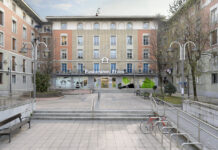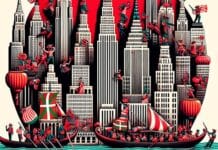This article was translated by John R. Bopp
Meeting of the Minds is a nonprofit based in San Francisco, California whose main goal is to connect the leaders in sustainability and urban technology to share knowledge of best practices and to build lasting alliances. As they explain in their mission statement, this concept of networking leaders includes people who are experts in their fields, such as the cities themselves as they fight hard to walk the path of urban sustainability.
On their website, they’ve just published an article penned by Gorka Espiau Idoiaga, a basque man who, at this moment, is a professor at the Centre for Interdisciplinary Research in Montreal. This center at McGill University was created in 2013 in order to “think Montreal” in all the key areas of development. It could be said that this, when compared to the city being discussed in this article, is a university-based version of Bilbao Metropoli 30.
The article seeks to place the process of change that this Basque metropolitan area has undergone in terms of its history, economy, politics, and society. The article gives key details that allow people unfamiliar with the topic to get an idea of what former Lehendakari Juan José Ibarretxe, who now heads the Aguirre Lehendakaria Center (to which Gorka Espiau belongs) has come to call the “Basque case”. These keys are necessary to understand, as the article explains well, not only this urban transformation, but also many key aspects of what it means “to be” from the Land of the Basques.
Meeting of the Minds – 6/6/2017 – USA
Basque Transformational Narratives
At the end of the 1970s, the Basque Country was emerging from forty years of dictatorship in which any expression of local culture had been repressed. The area was experiencing an industrial collapse that generated high unemployment and an international image directly associated with terrorist violence. Despite these circumstances, Bilbao and the Basque society managed to transform its economy and industrial base. It now leads international rankings in advanced manufacturing, education and healthcare, and has also generated a balanced distribution of wealth. This article aims to share some of the key elements that made this extraordinary transformation possible.
(Continue) (Automatic translation)
Last Updated on Dec 20, 2020 by About Basque Country





